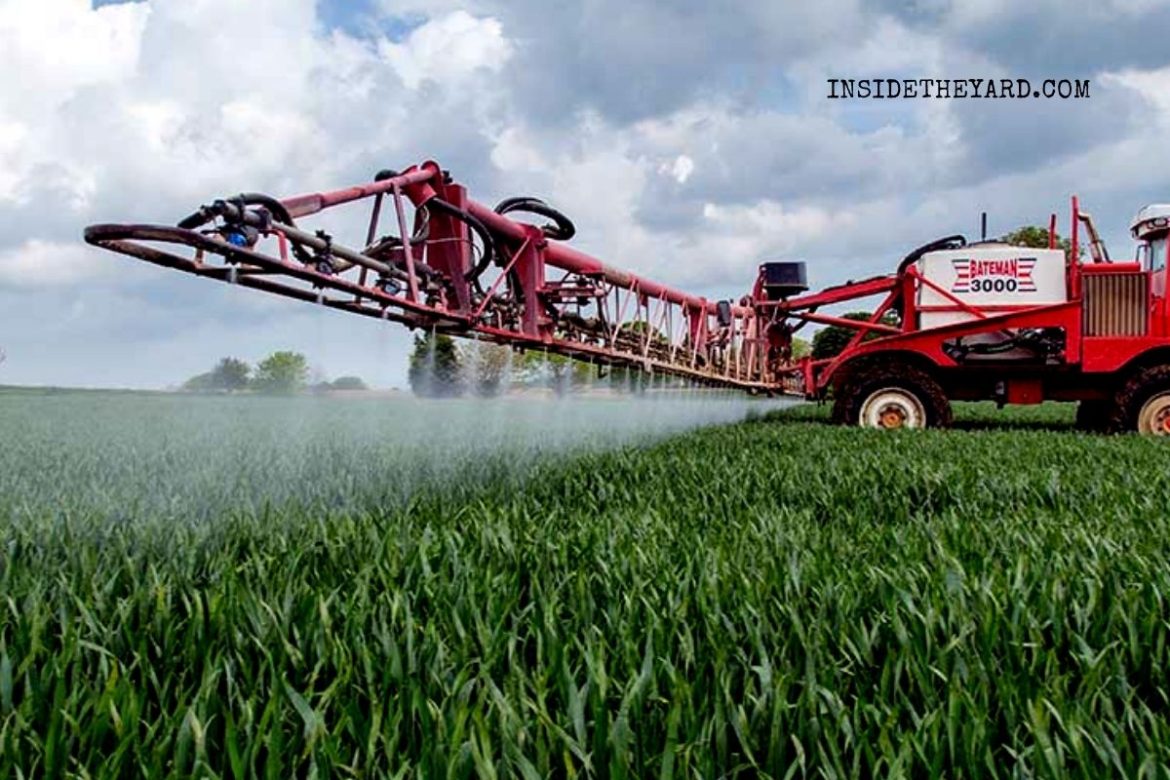When it is too hot, how do you spray Fungicide? In hot weather, Fungicide easily vaporizes, so you must apply it following some tricks.
Again if there are chances of rain, what are the precautions or what to do, is a very big question! And as per weather, plants’ behavior also changes differently. So it is unbearable sometimes.
So, in this article, we will share tips for spraying Fungicide in hot weather and its consequences, and how to do it properly.
The Best Time Of Spraying Fungicide In Hot Weather

Fungicide must spray in the morning or the late afternoon because spraying Fungicide in hot temperatures can cause the Fungicide to vaporize.
So, In low temperature and high relative humidity, spraying Fungicide can result in the best.
In case it rains, then try to avoid spraying Fungicide. But you can spray it for at least one hour. Meanwhile, the chemical will start to do work. So the temperature matters here.
The application time for Fungicide to plants
Different kinds of diseases have their own character, and they prefer to activate at different times.
The normal range of application for Fungicide to plants is once a week or every 7 to 14 days. And as we said before, remember applying Fungicide in cooler temperatures and higher humidity is great.
Tips for spraying Fungicide in hot weather
Almost every year, so many farmers and gardeners lose their plants to this irritating fungus. Thus these useful trees don’t get damaged. What can we do basically, we will discuss in this section,
- Know which type of fungus attacked your plants.
- Learn about the variety of fungus and their symptoms.
- Before spraying Fungicide, wear a protective suit.
- Do not spray in the late morning or at noon.
- Spray it in the morning or late afternoon when the temperature is below 85 degrees.
- Never ever apply it to the plants if it has a chance to rain.
- Do not use protective Fungicide too much; that may not work in the future.
- Too much Fungicide can be the cause of the slower growth of plants.
- Use light Fungicide when the flower is in the tree or plants.
- Know the basic formula or how to use it. Such as, In powdery mildew, 80% sulfur does the best work.
- If the weather is worst, hexaconazole and tebuconazole work like a pro
Let’s Talk About Some Common Fungicides And Their Uses
1. Moncozeb groups fungicide: It works in leaf spots, downy mildew, black spots on the fruits, flowers, leaves damaged, rust, and so on.
Also Read: How Long Does Weed Killer Need Before Rain Not Early Not Late
Its using process is 2.5 gm per liter. It will give you 7-14 days of protection in hot weather. It will work for about 10-15 days if the weather is good.
2. Copper Oxychloride groups fungicide: This is another kind of contact fungicide, which contains copper to cure your plants of copper deficiency. Copper Oxychloride can heal fruit rot, leaf spot, late blight, early blight, downy mildew, etc., kinds of diseases. Its dose is 2.5gm per liter as well.
3. Propiconazole: Well, propiconazole base fungicides are the best for leaf spots, fruit spots, and downy mildew. It is recommended for that time when the flowers are still in the plants. Because it helps not drop out from plants or trees as it is a very light fungicide, raw Fungicide can be harmful to flowers. Its dose is 2gm for 1 liter of water.
As it contains zinc, zinc helps prevent the lack of zinc and makes the plant more greenish.
There is some fungicide that is formulated by both protective and systemic formulas. But these are very qualified, and the price is very high.
This Video Will Help You Too!
Frequently Asked Questions (FAQs)
Can you spray Fungicide at night?
Yes, Fungicide works in low temperature and high humidity, so it can be sprayed in the morning or night. As long as you spray it properly, time does not make any changes.
Can you spray Fungicide in the rain?
You shouldn’t spray Fungicide in the rain, because it can be washed away and won’t work. Instead, it is recommended to spray Fungicide at least 1 hour before the rain, so the plant soaks it and works well.
What is the best time to spray Fungicide?
The best time for spraying Fungicide is early in the morning and late afternoon or in the evening.
Will fungicide hurt my plants?
Sometimes too much use of protective Fungicide can hurt plants. Therefore you have to know the right amount and consult experts to get the proper idea.
Conclusion
So that was all about spraying Fungicide in hot weather. Fungus changes its pattern every year or every month, you can say. So, it is tough to raise them. But we hope these tips and tricks will help you overcome the fungus problem in any weather.
So, let the planet be green; let the flower bloom! No matter the weather, you should keep your plants safe and healthy.
You Can Also Read:
- DIY: Zero Turn Sprayer Attachment [Step By Step Guide]
- [Explained] When to Apply Prodiamine? Detailed Roundup Schedule!
- Should I Cut Weeds Before Spraying? Got the Right Answer Finally!
- How to Stop Insects from Eating My Elephant Ears- 4 Expert Recommendations
Was it helpful?

Enamored with the world of golf Jack pursued a degree in Golf Course Management at THE Ohio State University. This career path allowed him to work on some of the highest profile golf courses in the country! Due to the pandemic, Jack began Inside The Yard as a side hustle that quickly became his main hustle. Since starting the company, Jack has relocated to a homestead in Central Arkansas where he and his wife raise cattle and two little girls.

